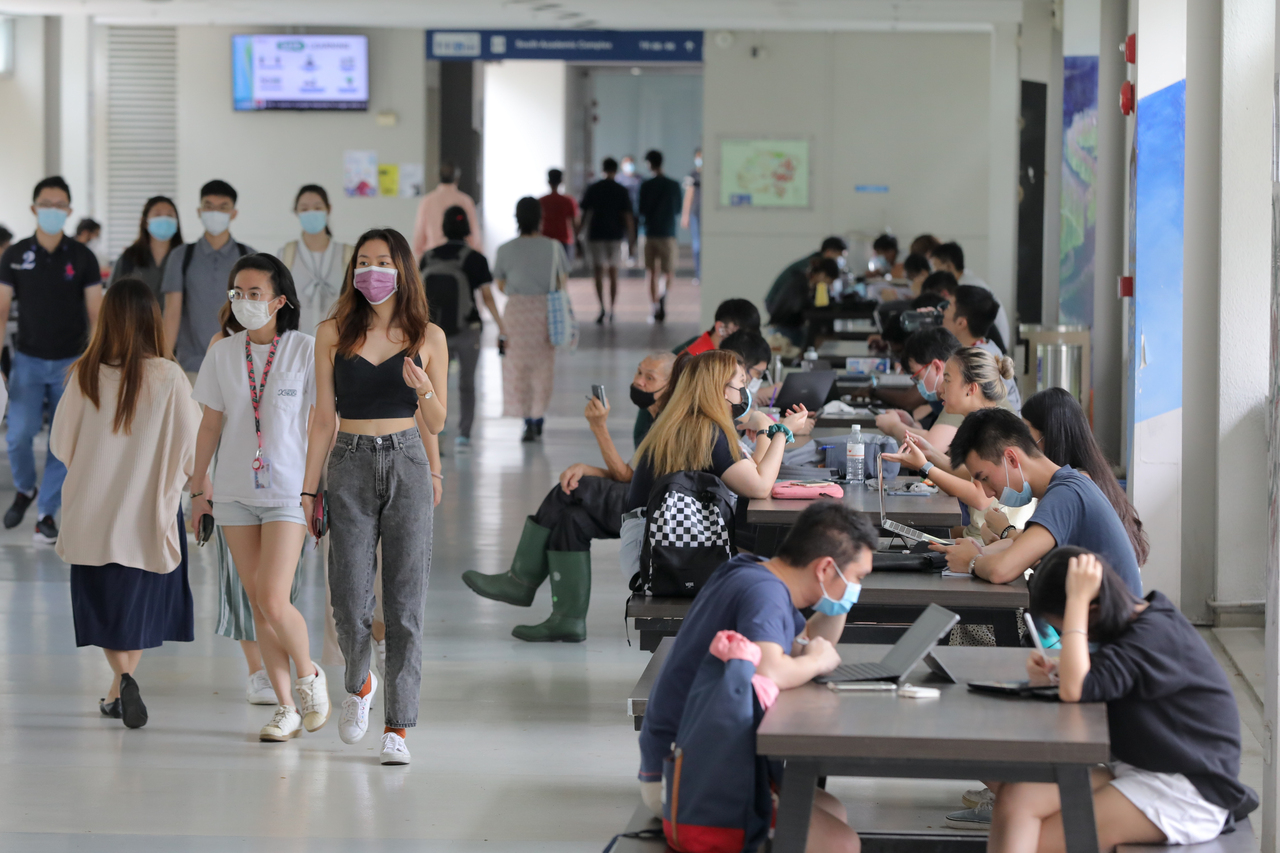$250,000 bursary set up for women studying Stem subjects in East Coast GRC
Sign up now: Get ST's newsletters delivered to your inbox

The proportion of women pursuing university degrees in Stem has been increasing, accounting for 41 per cent of the cohort in 2019.
PHOTO: ST FILE
Follow topic:
SINGAPORE - A $250,000 bursary has been set up for female students studying courses related to science, technology, engineering and mathematics (Stem) in East Coast GRC, and is expected to help at least 100 students financially from May.
Set up by East Coast grassroots organisations, it is targeted particularly at those from more modest backgrounds enrolled at the Institute of Technical Education, polytechnics and universities.
Deputy Prime Minister Heng Swee Keat was at the launch of the fund on Sunday (March 14), which is also International Pi Day - an annual celebration of the mathematical constant.
He said the WinSTEM bursary should enable more young women in East Coast to pursue their dreams in the Stem industry.
"Over the decades, science and technology have powered our economy and improved our lives. Critical to building a strong science and tech core is a Stem education," he said.
"As the world becomes more digital, driven by innovation and technology, we must do more to nurture interest in Stem from a young age. In recent years, more women have taken up courses in Stem."
International Women's Day was observed on March 8, and the Ministry of Social and Family Development has dedicated 2021 as the year of celebrating Singapore women.
The fund was raised by East Coast grassroots advisers, including Mr Heng, as well as Minister in the Prime Minister's Office Maliki Osman, Minister of State in the Prime Minister's Office Tan Kiat How, Deputy Speaker of Parliament Jessica Tan and MP Cheryl Chan.
Dr Maliki, who is also Second Minister for Education and Foreign Affairs, said it is important to help women who are on the journey towards achieving their dreams.
"We hope this bursary will not only support female students currently studying Stem courses, but also inspire more girls to consider Stem as a course of study and career," he said.
In February, the Ministry of Education said the proportion of women pursuing university degrees in Stem has been increasing, accounting for 41 per cent of the cohort in 2019, up from 28 per cent in 2017.
Despite this, only 30 per cent of local researchers and engineers are women, according to the Agency for Science, Technology and Research's Manpower Survey in 2018.
Dr Rebecca Tan, who holds a doctorate in immunology and is the editor-in-chief of the Asian Scientist, previously told ST that this can be attributed to what is known as the "leaky pipeline" of science, which means women who pursued Stem degrees do not go on to join the workforce in related areas.
The main reason for this is largely family obligations, along with family-unfriendly work environments, marginalisation, and funding gaps, she noted.
Applications for the bursary can be made at this website.

